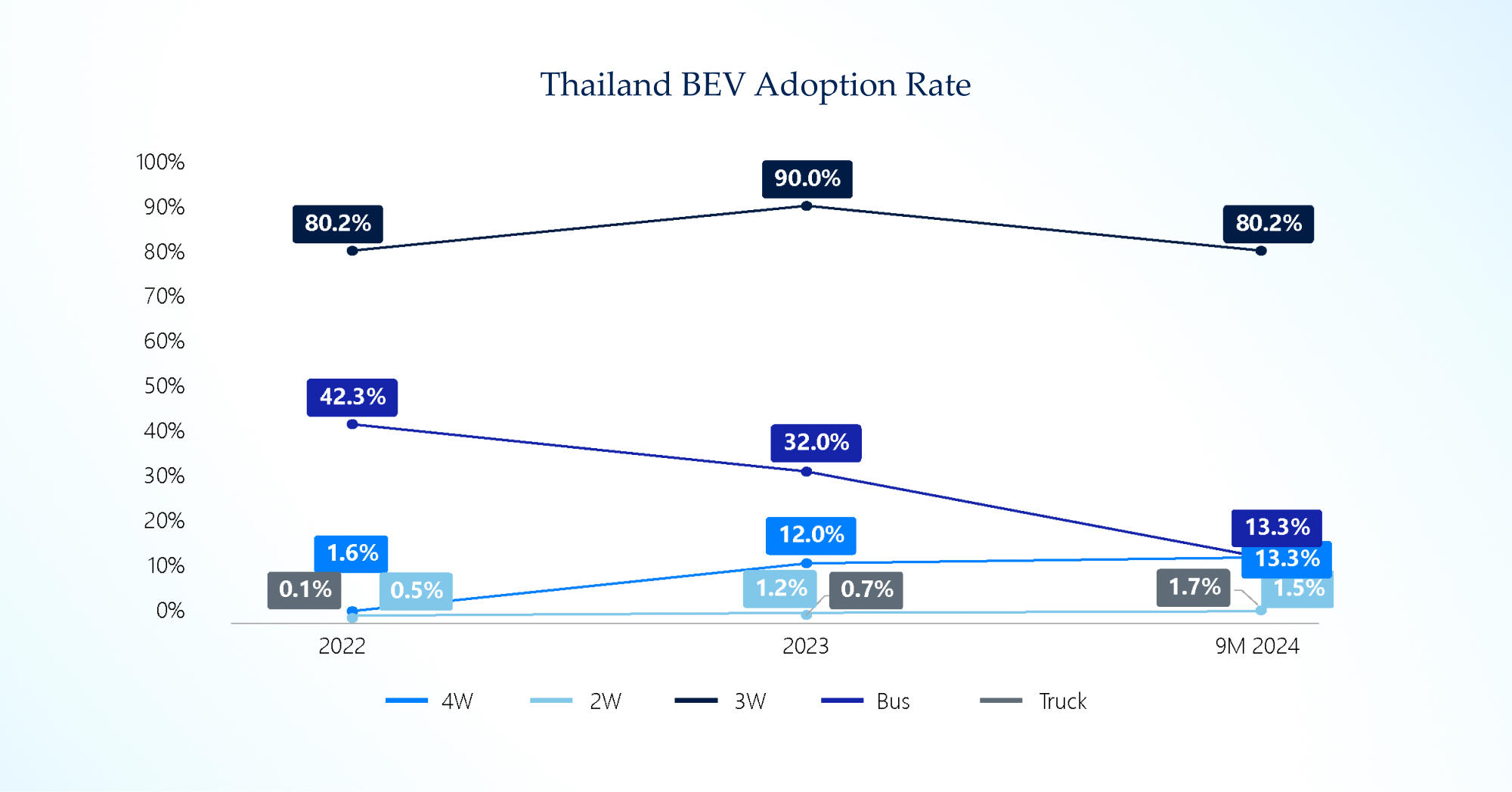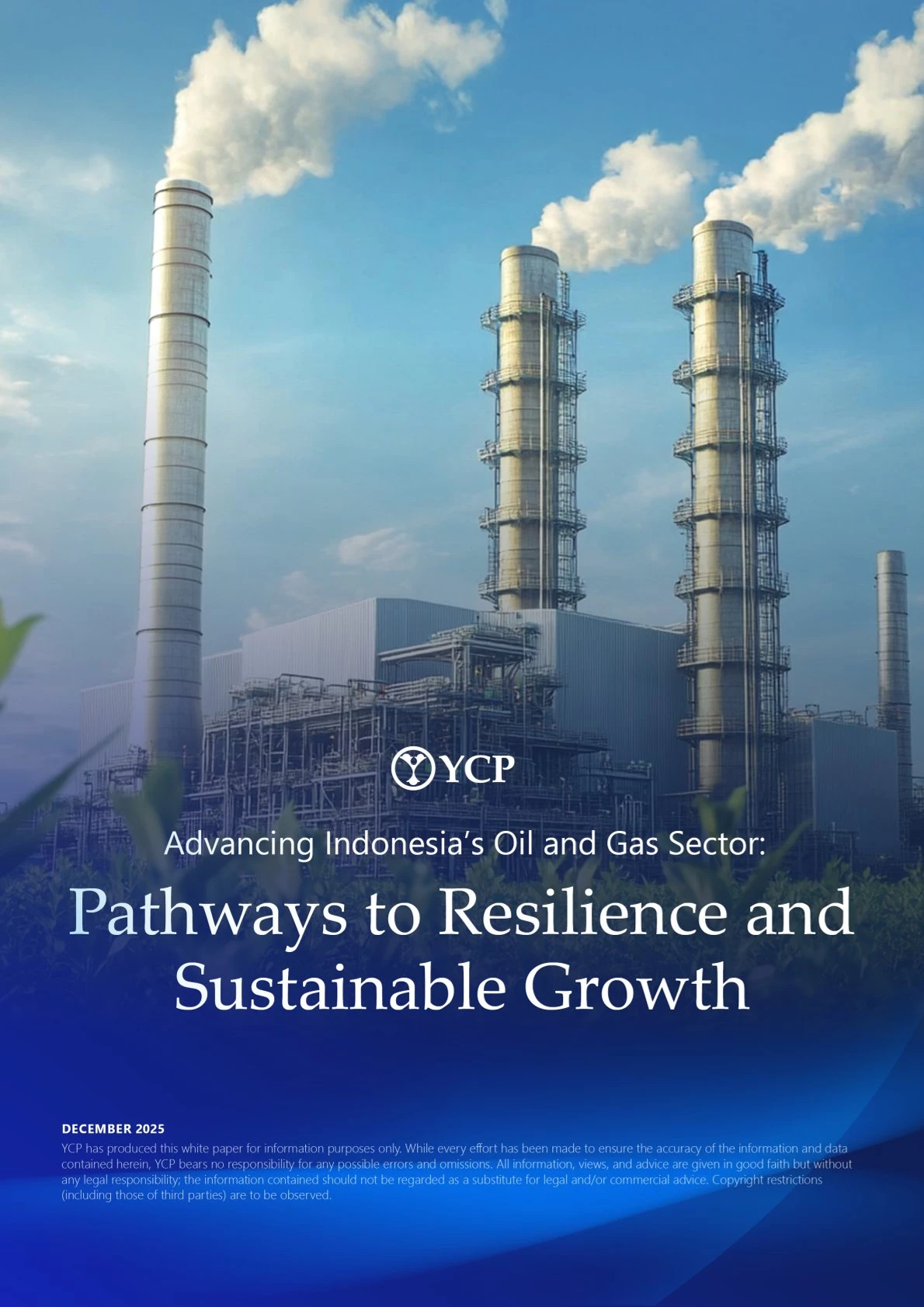Amidst challenging market conditions, Thailand’s electric vehicle (EV) market continues to expand. Government initiatives, including subsidies, tax incentives, and a commitment to expanding EV structure, have enabled sustained growth for the industry. Across Thailand’s battery electric vehicle (BEV) market, various segments have shown signs of both growth and contraction, indicating that the market is constantly evolving.

Overview on SEA’s Automotive Industry
Meanwhile, Southeast Asia’s automotive industry has been facing significant market shifts, as vehicle sales have exhibited a notable year-on-year decline during the second quarter of 2024. This signals towards a regional slowdown, with Thailand experiencing the heaviest downturn in sales (-24.2%). Closely following Thailand is Indonesia at -19.4%, and Vietnam at -1.8%.
Experts have attributed the market’s downward trend to several factors. Inflation, rising interest rates, weakened consumer spending power, and Thailand’s increasing household debt level have fueled the country’s rising car loan rejection rate, which currently sits at 20-30%. Despite the strong interest in vehicle sales, such barriers effectively prevent consumers from making the purchase.
Even with the slowdown in vehicle sales across Southeast Asia, Thailand’s EV market continues to show signs of promising growth. While the pace of EV adoption in Thailand remains uneven across different mobility segments, this presents the country with both opportunities and challenges to capitalize on and address, as they shift towards electric mobility.
To cement their position as a regional EV hub, overcoming Thailand’s electric vehicle market barriers will be crucial. They must continue to upskill their workers, expand charging infrastructure, and establish relationships with key partners involved in the industry.
Explore our latest white paper to gain valuable insights into the regulations, opportunities, and policies shaping Thailand's rise as Southeast Asia's EV leader.
Author
Mehdi Jaouadi
Mehdi is a Partner based in Thailand, with over 14 years of experience in strategy formulation, business development, and large-scale expansion growth within Automotive, FMCG, Healthcare, and other sectors.
Recent White Paper
See All





